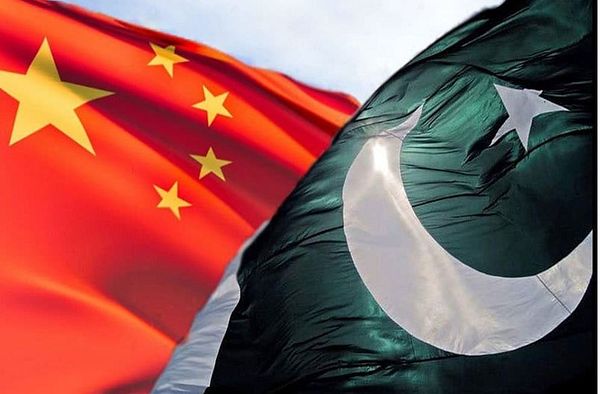China-Pakistan Marriage of Convenience
In its latest plenary meeting in June 2022 at Berlin, the Financial Action Task Force (FATF) decided to retain Pakistan in the grey list. Islamabad was placed on the grey list in June 2018 and was given 27-point action plan by the FATF to contain terror financing. In addition, FATF had handed over another seven points in October 2021 to counter money laundering. Out of 34 points, Pakistan has fulfilled 32 points. Interestingly, just before the FATF meeting, Pakistan government had launched a propaganda drive to claim that it will be soon out of the grey list. Clearly this propaganda failed flat and didn’t impress the FATF.
But Islamabad’s troubles don’t end there. The recent move by China to block the joint India-US proposal to name the Lashkar-e-Taiba’s (LeT) Deputy Amir Abdul Rehman Makki as a ‘global terrorist’ under the Islamic States and Al-Qaeda Sanction Committee of the UN Security Council may jeopardise its ambitions to come out of the grey list.
It is not like Makki’s involvement in the terrorist activities is unknown. As deputy chief and head of political affairs of the Jamaat-ud-Dawa or the LeT, he is alleged for his involvement in several major attacks against India including the 2008 Mumbai attacks. He has been part of the proselytising, fund raising and recruiting youth from Jammu and Kashmir. Makki is also member of organisations like Dawat Irshad Trust, Moaz Bin Jabal Trust, Al-Anfal Trust, Al-Madina Foundation Trust and Al Hamd Trust and Difa-e-Pakistan Council, the motley coalition of 40 right-wing political and religious parties of Pakistan which had once rallied against India and the United States.
Yet, China placed a “technical hold” on the proposal to designate Makki. But when it comes to counter-terrorism, China’s double standards are not new. It has taken this step repeatedly in the last few years to shield Pakistan from its misdeeds. Like Makki, China had earlier for a long time obstructed the listing of Maulana Masood Azhar, chief of the Jaish-e-Mohammad (JeM).
But now that their connivance is getting exposed, Pakistan has done what it knows best to hoodwink the international community by taking cosmetic action.
The recent arrest of one of the most wanted terrorists, Sajid Mir is to be seen from this perspective. He was also involved in the 2008 Mumbai attacks. However, Pakistan’s incapable and incompetent justice system “quietly convicted” Mir and sentenced for 15 years jail. But as we have seen repeatedly in the past, these terrorist masterminds will be freed soon and roam freely in Pakistan. Pakistan’s talk of counter-terrorism actions is nothing more than a charade.
At the FATF, Pakistan is due to be assessed in October 2022 in Paris. And in the run-up to that its all-weather friend China is creating a lobby to support Pakistan so that it can be moved out of the FATF grey list. Pakistan is a too valuable ally for China to let go as it serves the anchor of Chinese presence in the Indian subcontinent and serves as a gateway – for whatever its worth – to the West Asian and European markets.
China’s duality in counter-terrorism raises several questions about its actions against the Uyghurs in Xinjiang Province, which it considers a threat to its national territorial integrity. But simultaneously, Beijing is overlooking Pakistan’s terrorist infrastructure which indirectly threatens its security interests and jeopardises its Belt and Road Initiative investments.
This duplicity in China’s attitude towards combating terrorism speaks volumes about the false commitments at the multilateral forum like the BRICS and Shanghai Cooperation Organisation. Shielding a global terrorist state undermines Beijing’s credibility and exposes it to the growing threat of terrorism.
Although China claims to officially advocate “non-interference” in the “internal matters” of another country, it has been engaging with various Pakistani players (political parties, military, religious groups) at local and national levels. In fact, it won’t be wrong to assume that China’s technical hold over the LeT terrorist mastermind, Makki is to actually protect its China-Pakistan Economic Corridor interests in Punjab where the LeT also happens to have a strong hold. The Xi administration may have succumbed to the pressures to pave its project at Gwadar port and ensure its access. But such short-term approach is only hurting China’s long-term interests.
China must reflect on its actions vis-à-vis counter-terrorism as it struggles to make tough choices between economic expansion and terrorism.













